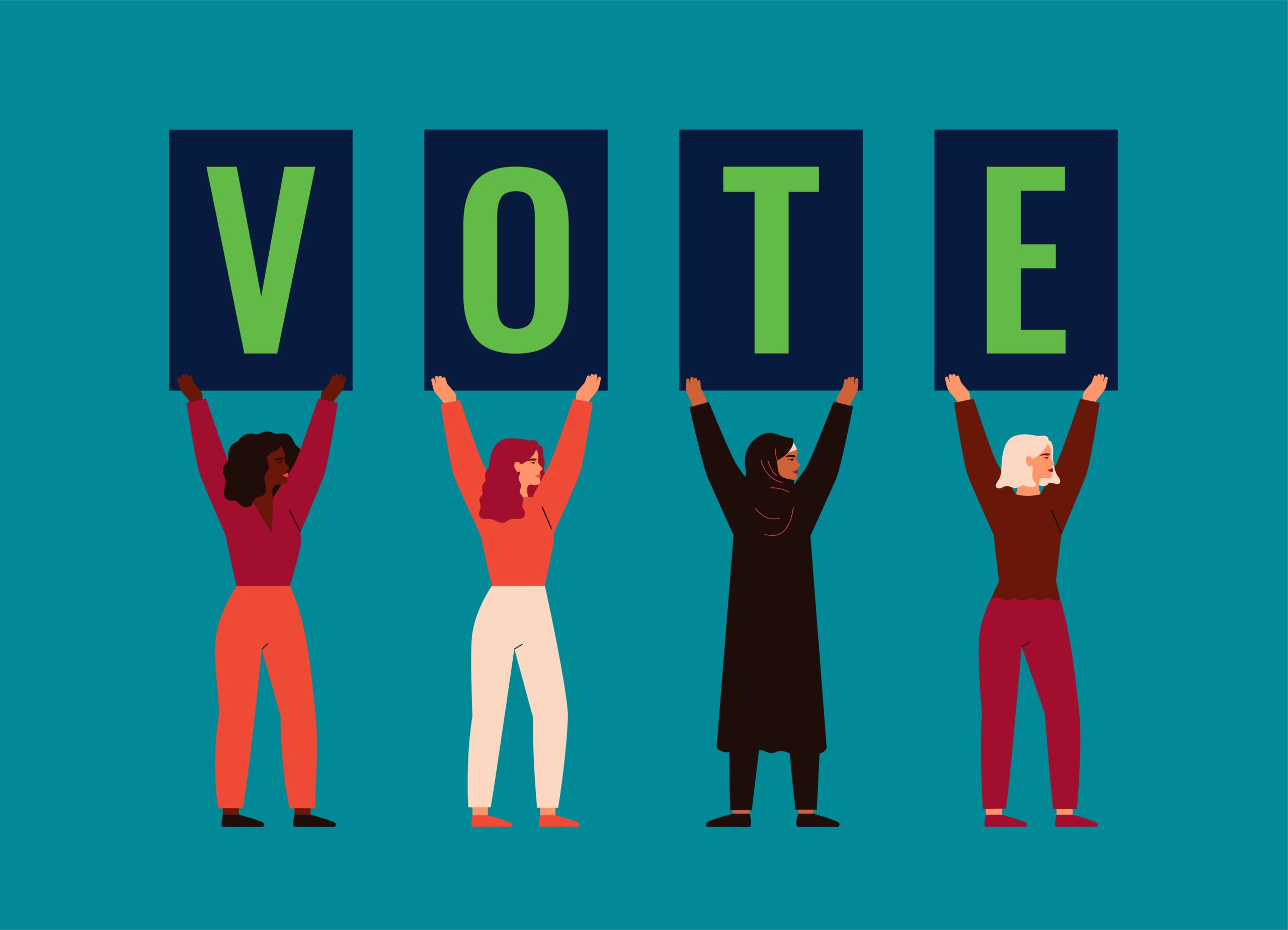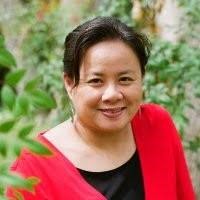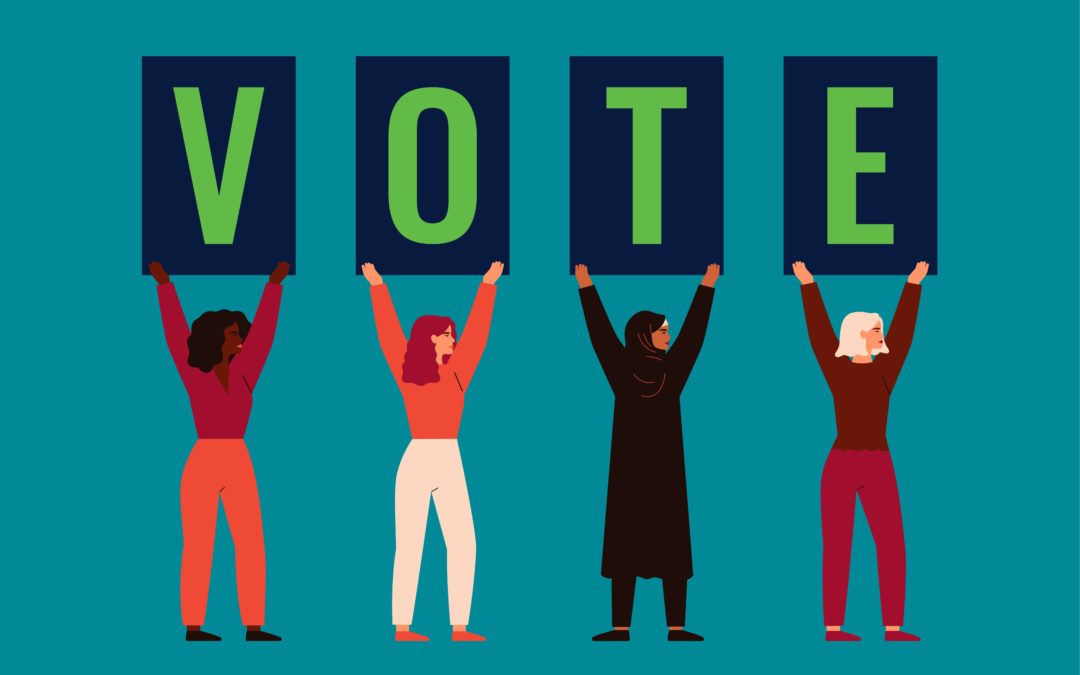From the 19th Amendment 100 Years Ago to the 1965 Voting Rights Act, WCA Women Share Their Heritage, Struggle and Hope

by Anne Lasseigne Tiedt, co-owner of Momentum Public Relations in Austin, makes it her mission to help clients have confidence in communications and be good news in their communities.

In early 2020, I was sitting in a 2020 Communications Planning Meeting at Girls Empowerment Network’s office, reviewing upcoming communication campaign milestones for the year.
Our list included International Women’s Day in March; Women’s Equality Day in August; International Day of the Girl in October; and the 100th Anniversary of the 19th Amendment, among others.
The 100th Anniversary of the 19th Amendment Didn’t Serve Everyone

Raven Hamilton
As we began to discuss the 100th Anniversary of the 19th Amendment, Raven Hamilton, a student in Communication Studies – Interpersonal Communications at The University of Texas (May 2022), shared an important discovery and conversation with us.
“I wasn’t fully aware that the 19th Amendment didn’t serve women of color, especially Black women, until I was asked to research and create a social media campaign to highlight the 100th Anniversary of the 19th Amendment,” says Raven. “I shared this in our larger planning meeting because I wanted to make sure that was known. This is a milestone, but I didn’t want it to become something it wasn’t in our online communications. It didn’t serve everyone.”
August 18, 2020, marked 100 years since the ratification of the 19th Amendment to the U.S. Constitution granting women the right to vote. While this is an amazing anniversary, for historical context it is important to note that this ratification gave white women the right to vote and did not include women of color.
I followed up with Raven, and asked how she felt when she discovered this. “I felt the same way I’ve felt my whole life. I knew about racism and sexism – the intersectionality of who you are – exists. And Colorism, especially if you are a dark-skinned woman,” she says. “There are suppression efforts to keep you bound and then discovered. I was not shocked; this was just new news.”
“Black women had to create their own movement because the women’s suffrage movement didn’t include them,” she says.
This issue has been covered by the media in many media outlets, including here by NPR, this year. So more than ever, there are a lot of opinions and resources on the subject.
But as we learned in our September 2020 Diversity, Inclusion and Equity WCA@Lunch, conversation with and asking questions of your colleagues and friends are two of the best ways to educate yourself and evolve your thinking.
I reached out to longtime WCA member Michele Chan Santos to also ask her about her thoughts on the issue.
Asian-Americans: No Right to Vote Until 1952

Michele Chan Santos
“I am a first-generation Asian-American, of Chinese and Filipino heritage,” shares Michele Chan Santos. “My parents emigrated to the United States from the Philippines in the late 1960s; they came to America as international students to attend graduate school at the University of Iowa, where they both earned their PhDs. My father taught English and creative writing at the University of Northern Colorado; my mother taught Chemistry at Colorado State University. They were naturalized as American citizens in 1980, when I was ten years old, at a ceremony in Denver. Ever since they were able, I remember my parents voting in each election, and making sure I registered to vote when I turned 18.”
“But if I had been living in the United States in the 1920s, I would not have been allowed to vote. In fact, no one in my family (male or female, or any other immigrants from any Asian country) would have been able to become a citizen. In 1882, the Chinese Exclusion Act barred people of Chinese ancestry from naturalizing to become U.S. citizens. In 1922, the U.S. Supreme Court ruled that people of Japanese heritage were unable to become naturalized citizens; the following year, the court found that “Asian Indians” (people from India) were also not able to naturalize. (This is a timeline of when different groups in the United States were allowed to vote.)”
“It was not until 1952 that the McCarran-Walter Act (also known as the Immigration and Nationality Act) granted all Asian-Americans the right to become citizens–a mere 18 years before I was born in Iowa City, where my parents were students.”
Michele concludes by saying, “This year, my youngest child turned 18, and I took him to the polls in July to vote for the first time. It’s something our family doesn’t take for granted.”
What About Latina Women?

Cassandra Sanchez-Barrera
I also reached out to fellow WCA member Cassandra Sanchez-Barrera to talk about her thoughts on celebrating the 19th Amendment. I appreciated her honesty regarding the subject.
“I’m not the right person to answer this question,” she said. “I do feel it’s important to point out that the NPR article neglected to mention Latinos at all. I can only assume Latinos at that time felt marginalized, underpaid, underrepresented, invisible, and probably worked to serve others in their home or in their fields; I don’t know that much has changed.”
We believe Cassandra’s opinion and voice are exactly what we need to hear right now. She recommends the articles America’s Forgotten History of Illegal Deportations and The U.S. Deported a Million of Its Own Citizens to Mexico During the Great Depression for information on what life was like for Mexican Americans nine years after the 19th Amendment was passed.
I asked Raven how she would celebrate this milestone. “Honestly, I wouldn’t. It was the start of the continued fight that went on for decades until the 1965 Voting Rights Act was passed.”
We are glad that so much has changed since 1920. In the last 100 years, the voting line has been expanded to include so many more American women and men.
Your vote matters. Vote now and let your voice be heard.
ABOUT THE AUTHOR
For more than 20 years, Anne Lasseigne Tiedt‘s award-winning strategic communications campaigns have gained both local and national attention. As co-owner of Momentum Public Relations in Austin, Texas, her team makes it their mission to help clients have confidence in communications and be good news in their communities. Since 2008, Momentum Public Relations has helped dozens and dozens of clients gain the recognition they deserve; prioritize initiatives to reach their business and communication goals; support and create PR and thought leadership programs; create engaging content; alleviate stress connected to communication deliverables; further digital engagement; and create measurable communications results. Anne has held her Accreditation in Public Relations since 2003, and is a Past President of Women Communicators of Austin (2007-2008). She holds a Bachelor of Journalism in Public Relations and a Minor in Business from The University of Texas at Austin (May 1996)
- How can I make my resumé stand out? - July 13, 2025
- In Memoriam: Pam Baggett-Wallis - February 5, 2024
- Anne Lasseigne Tiedt, APR - January 6, 2024

